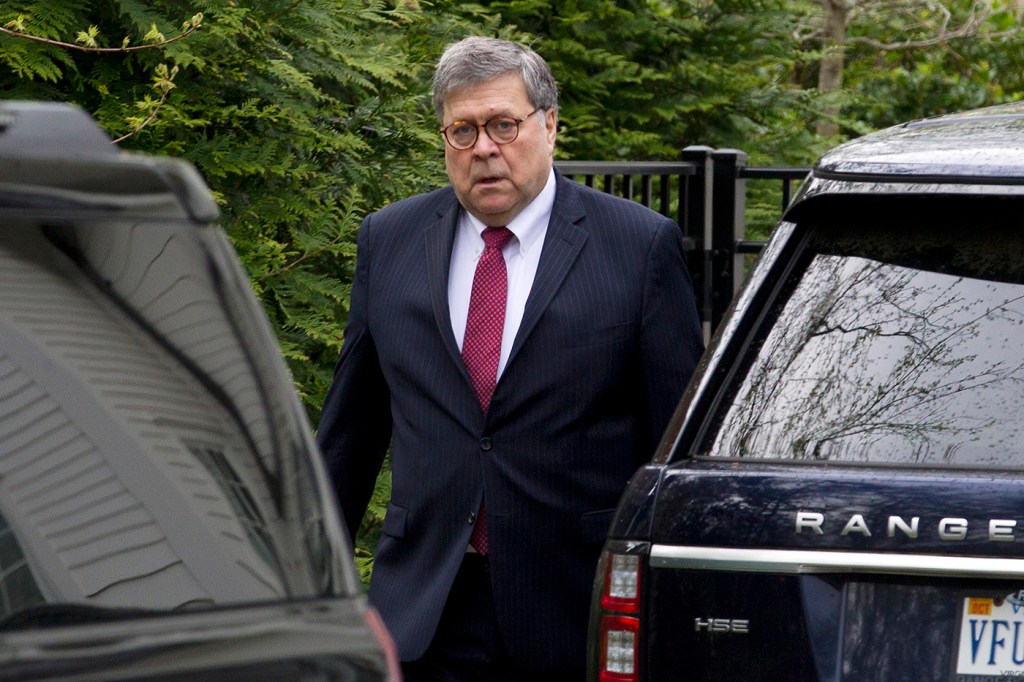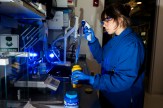Attorney General William Barr says the Mueller report cleared Donald Trump of obstructing justice. Does it?

Attorney General William P. Barr characterized the report by Special Counsel Robert F. Mueller released Thursday as much more favorable toward President Donald J. Trump than the actual report appears to be, according to Northeastern law and political science professors.
And while it’s not clear whether Barr intended to present the Mueller report in a more charitable light, the gulf between his assessment of the report and the findings of the report itself could erode the trust Americans have in the rule of law, the professors said.
“It’s fair to say that Barr interpreted and presented the findings in a way that minimized Trump’s culpability and that it appears as though there’s greater cause for concern raised by the report than Barr would’ve led us to believe,” said Daniel Medwed, University Distinguished Professor of Law and Criminal Justice at Northeastern.
“Overall I’m disappointed in the attorney general’s handling of this,” he said.
Mueller and a team of investigators have spent the past two years examining Russian interference in the 2016 presidential election. At the end of March, when his investigation was complete, Mueller submitted a confidential report to Barr with the results. A few days later, Barr sent a four-page letter to Congress, summarizing the findings in the report.
On Thursday, Barr held a press conference during which he again summarized the findings before releasing a redacted version of Mueller’s report to members of Congress and the public.
“[Barr’s] partisanship really shone through in the four-page summary and today’s press conference,” Medwed said Thursday. “It really felt like he was priming people to receive the report in a particular way, and that’s a problem.”
Mueller found that the Russian government “perceived it would benefit from a Trump presidency” and the Trump campaign “expected it would benefit electorally from information stolen and released through Russian efforts.” But he ultimately determined that there was insufficient evidence to establish that Trump or his associates engaged in criminal conspiracy with Russia during the 2016 election.
In his letter and in his remarks during Thursday’s press conference, Barr emphasized this finding. He made the point several times Thursday, saying at one point, “…we now know that the Russian operatives who perpetrated these schemes did not have the cooperation of President Trump or the Trump campaign.”
Mueller also examined whether Trump sought to obstruct justice during the Russia investigation, but could not come to a definitive conclusion. He and his team of investigators examined 11 actions that Trump took that could have amounted to obstruction of justice, including his firing of James Comey, his FBI director, but could not reach a definitive answer.
“While this report does not conclude that the president committed a crime, it also doesn’t exonerate him,” the report reads.
But Barr, in his letter and in his remarks Thursday, did reach a definitive conclusion.
“The deputy attorney general and I concluded that the evidence developed by the special counsel is not sufficient to establish that the president committed an obstruction of justice offense,” he said during the press conference.
Costas Panagopoulos, a professor of political science at Northeastern, said that Barr put a political spin on the report by emphasizing that Mueller found no coordination between Trump and Russian agents and saying that Trump did not obstruct justice.
“It seems that Barr was motivated more by political considerations than legal concerns,” Panagopoulos said.
Added Medwed: “My concern is about the appearance of impropriety. Over the course of the last three weeks, it appeared as though Barr emphasized certain findings to the exclusion of other findings, which together gave the impression of a report that didn’t necessarily do it justice.”
Barr’s decision to declare that Trump had not obstructed justice, both Medwed and Panagopoulos said, could undermine the trust Americans have in the country’s justice system.
“It’s baffling that an attorney general would want to cause further deterioration of trust in the nation’s top law enforcement agency,” Panagopoulos said.
For media inquiries, please contact Mike Woeste at m.woeste@northeastern.edu or 617-373-5718.





